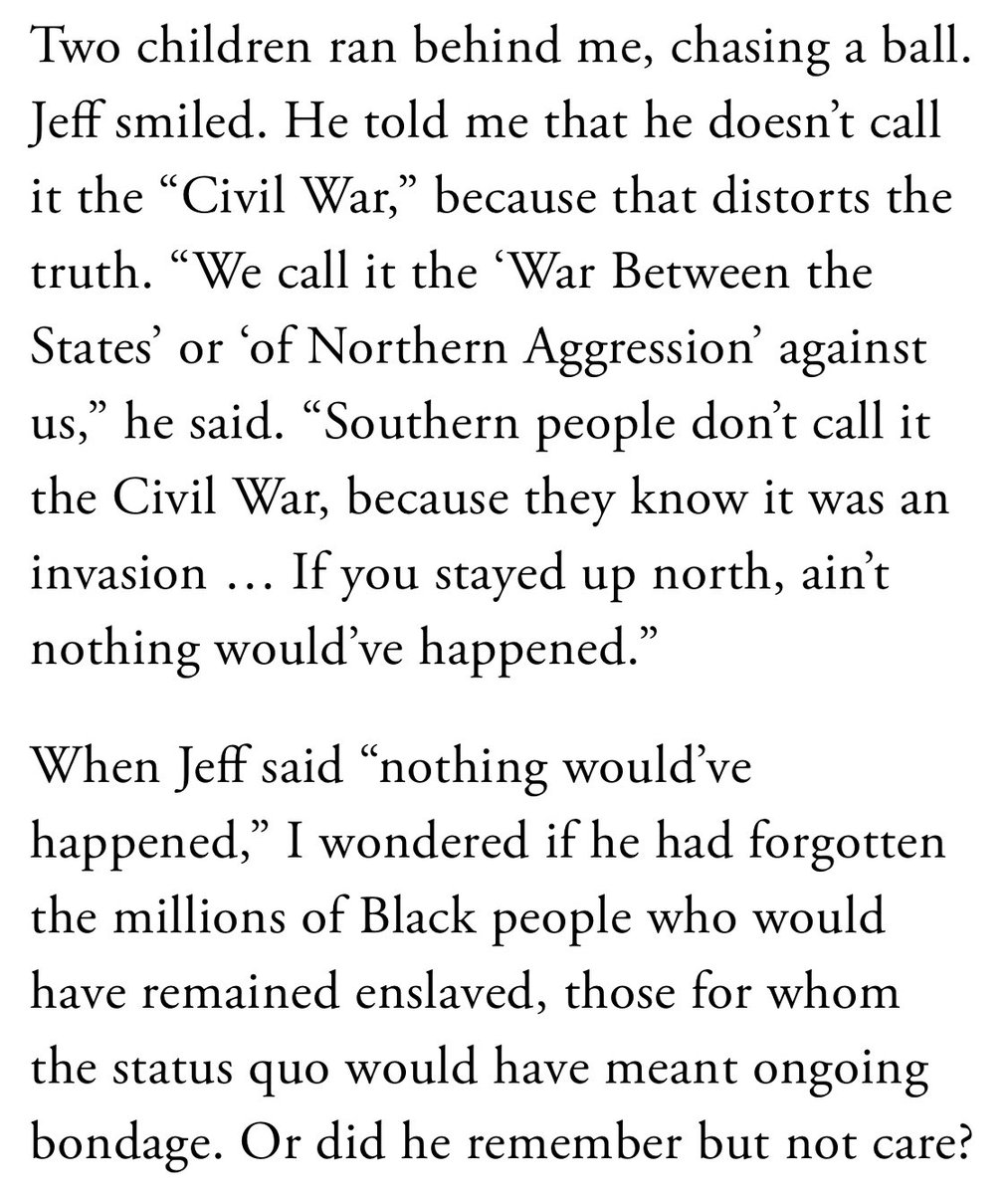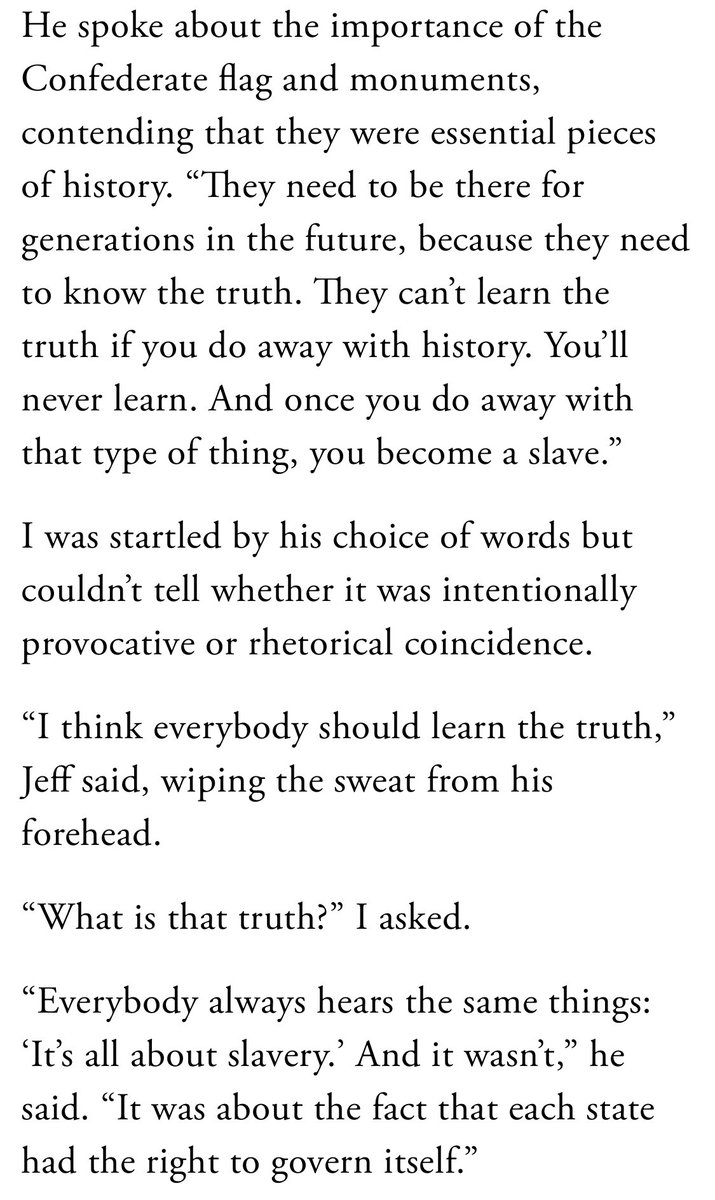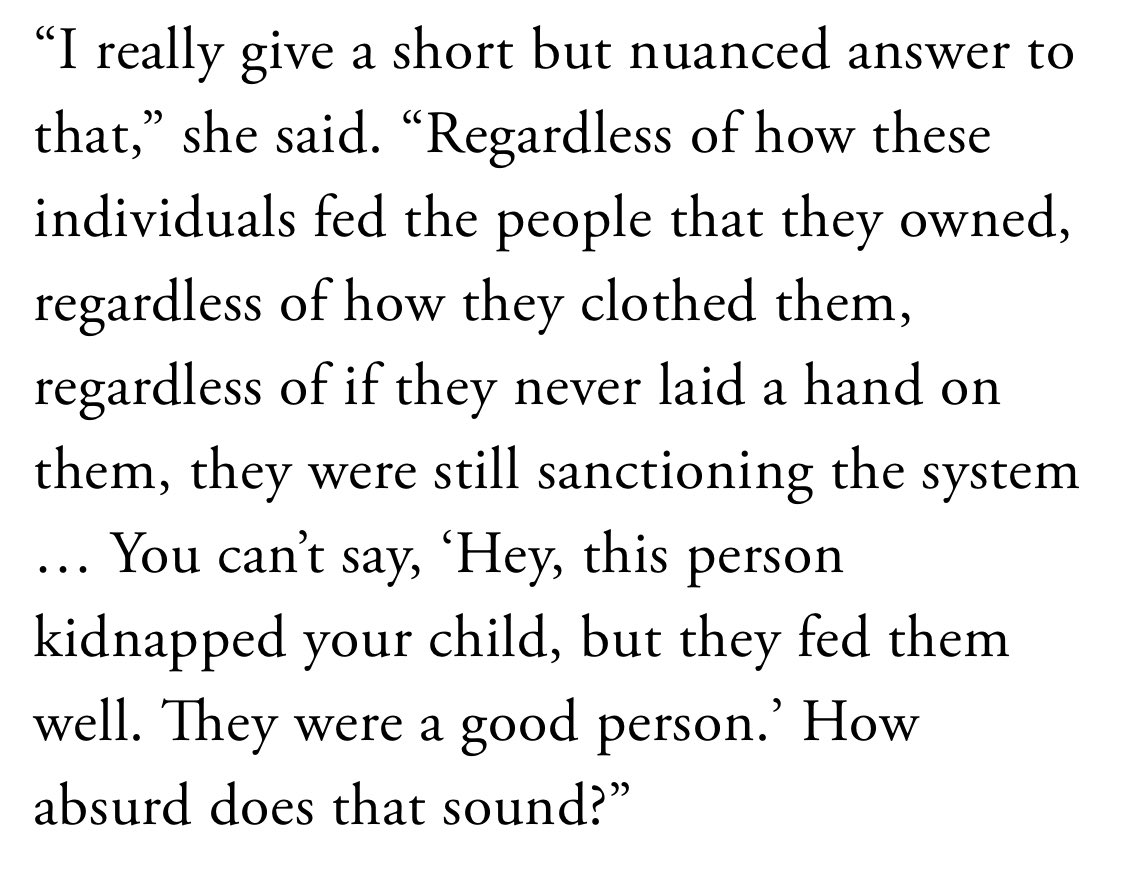Before the pandemic, I traveled to one of the largest Confederate cemeteries in the country & spent the day with the Sons of Confederate Veterans to understand how the Lost Cause lives on.
This excerpt from my new book is the cover story for @TheAtlantic. https://www.theatlantic.com/magazine/archive/2021/06/confederate-lost-cause-myth/618711/">https://www.theatlantic.com/magazine/...
This excerpt from my new book is the cover story for @TheAtlantic. https://www.theatlantic.com/magazine/archive/2021/06/confederate-lost-cause-myth/618711/">https://www.theatlantic.com/magazine/...
At the Blandford Cemetery in Petersburg, VA the remains of 30,000 Confederate soldiers are buried. Tombstones stretch across the nearly 200 acre land. Confederate battle flags dot the landscape to the extent that, from a distance, you might mistake them for small, red flowers.
When I was there, I listened as members of the Sons of Confederate Veterans told me a story about the Civil War and American history that was very different than the one I knew, different than the one that was grounded in reality.
https://www.theatlantic.com/magazine/archive/2021/06/confederate-lost-cause-myth/618711/">https://www.theatlantic.com/magazine/...
https://www.theatlantic.com/magazine/archive/2021/06/confederate-lost-cause-myth/618711/">https://www.theatlantic.com/magazine/...
My presence at a Sons of Confederate Veterans event, as you can probably imagine, was pretty conspicuous.
https://www.theatlantic.com/magazine/archive/2021/06/confederate-lost-cause-myth/618711/">https://www.theatlantic.com/magazine/...
https://www.theatlantic.com/magazine/archive/2021/06/confederate-lost-cause-myth/618711/">https://www.theatlantic.com/magazine/...
What became clear was that, for many people, history isn’t the story of what actually happened, it is just the story they want to believe. It is not a public story we all share, but an intimate one, passed down, that shapes their sense of who they are.
https://www.theatlantic.com/magazine/archive/2021/06/confederate-lost-cause-myth/618711/">https://www.theatlantic.com/magazine/...
https://www.theatlantic.com/magazine/archive/2021/06/confederate-lost-cause-myth/618711/">https://www.theatlantic.com/magazine/...
Confederate history is family history, history as eulogy, in which loyalty takes precedence over truth. This is especially true at Blandford, where the ancestors aren’t just hovering in the background—they are literally buried underfoot.
But there are places that are pushing back against the mythology of the Lost Cause, places like the Whitney Plantation, which is the only plantation museum in Louisiana that focuses exclusively on the lives of enslaved people and one of few in the entire country that does so.
Yvonne, the Black woman who was my tour guide at the Whitney plantation, told me that the most common question she gets from white visitors is:
“I know slavery was bad … I don’t mean it this way, but … Were there any good slave owners?”
https://www.theatlantic.com/magazine/archive/2021/06/confederate-lost-cause-myth/618711/">https://www.theatlantic.com/magazine/...
“I know slavery was bad … I don’t mean it this way, but … Were there any good slave owners?”
https://www.theatlantic.com/magazine/archive/2021/06/confederate-lost-cause-myth/618711/">https://www.theatlantic.com/magazine/...
Still, what Blandford clarified for me is that for so many Americans, history is not about primary sources and evidence. It’s about a story they have been told. It’s about family. It’s about lineage. It’s about accepting that which makes you comfortable. https://www.theatlantic.com/magazine/archive/2021/06/confederate-lost-cause-myth/618711/">https://www.theatlantic.com/magazine/...
This excerpt is adapted from my forthcoming book, HOW THE WORD IS PASSED, which is out June 1st. I hope you’ll consider preordering a copy. https://twitter.com/clintsmithiii/status/1321480732435468288">https://twitter.com/clintsmit...
Many thanks to Honor Jones, @denisewills, and the other readers on the Atlantic editorial team who helped adapt my chapters on Blandford and the Whitney into something that would work for a magazine piece. They did an amazing job.
And for those who receive the print magazine, this is what the cover looks like. Incredible job from the Atlantic art department. https://twitter.com/theatlantic/status/1389551964103585792">https://twitter.com/theatlant...

 Read on Twitter
Read on Twitter





